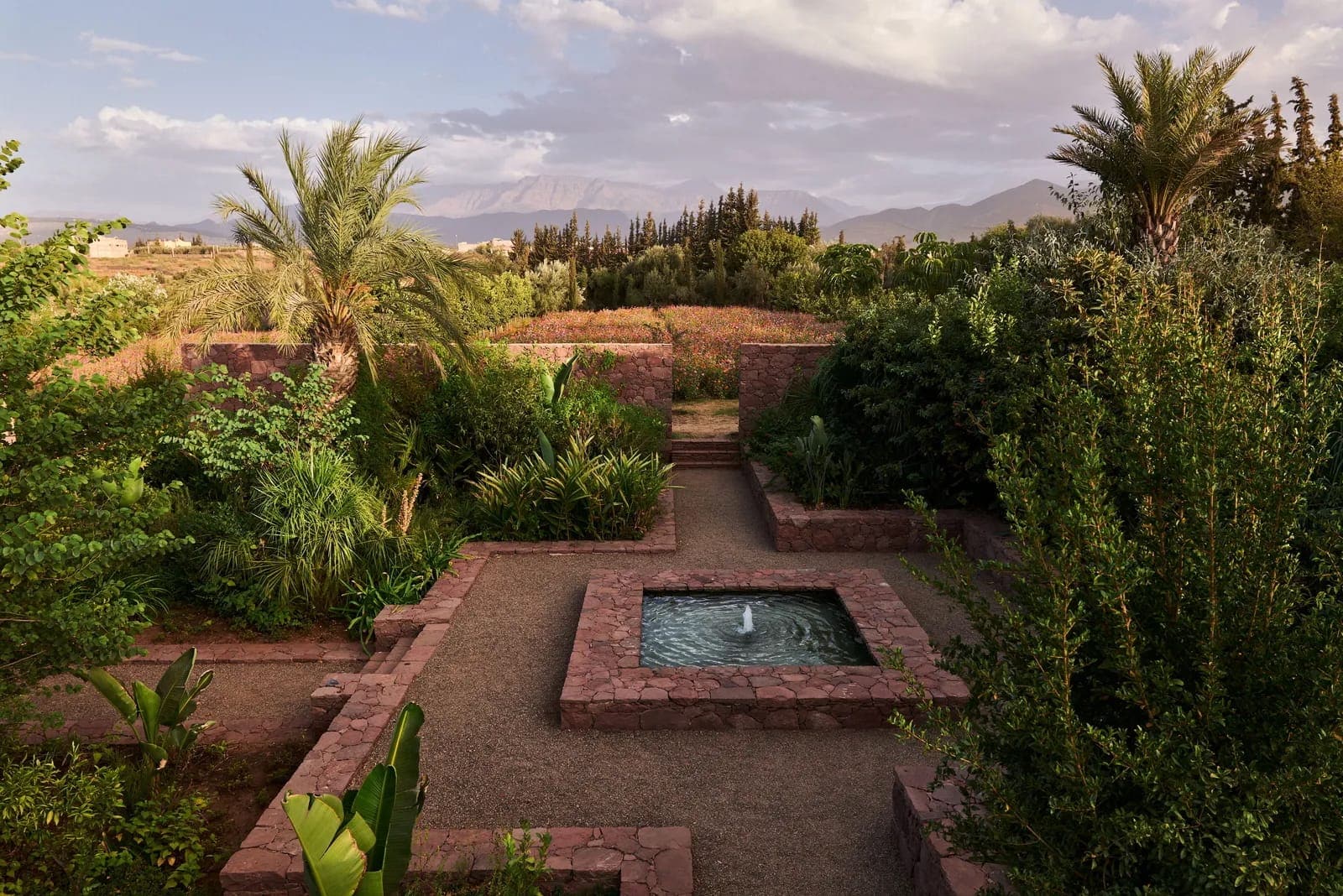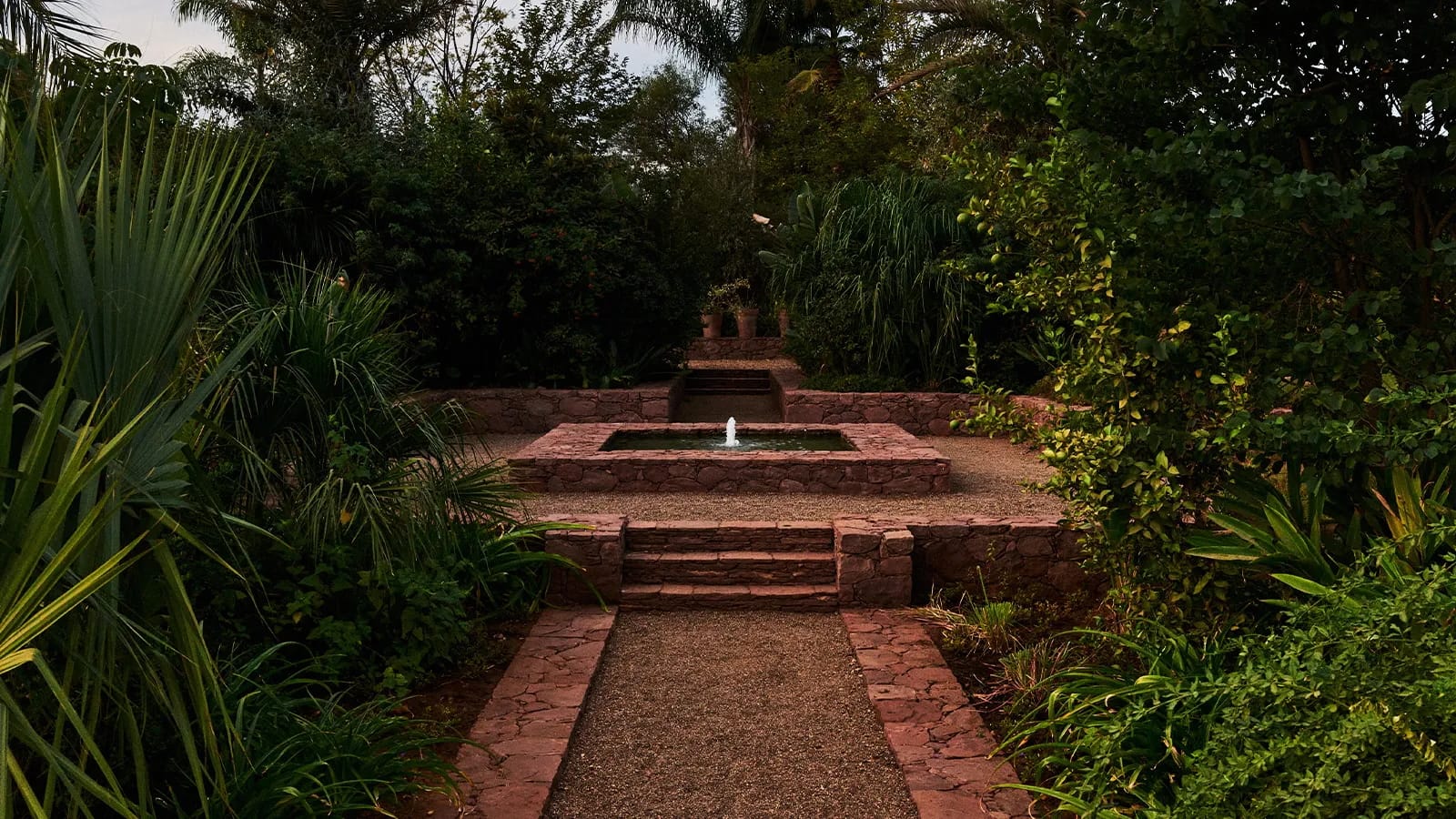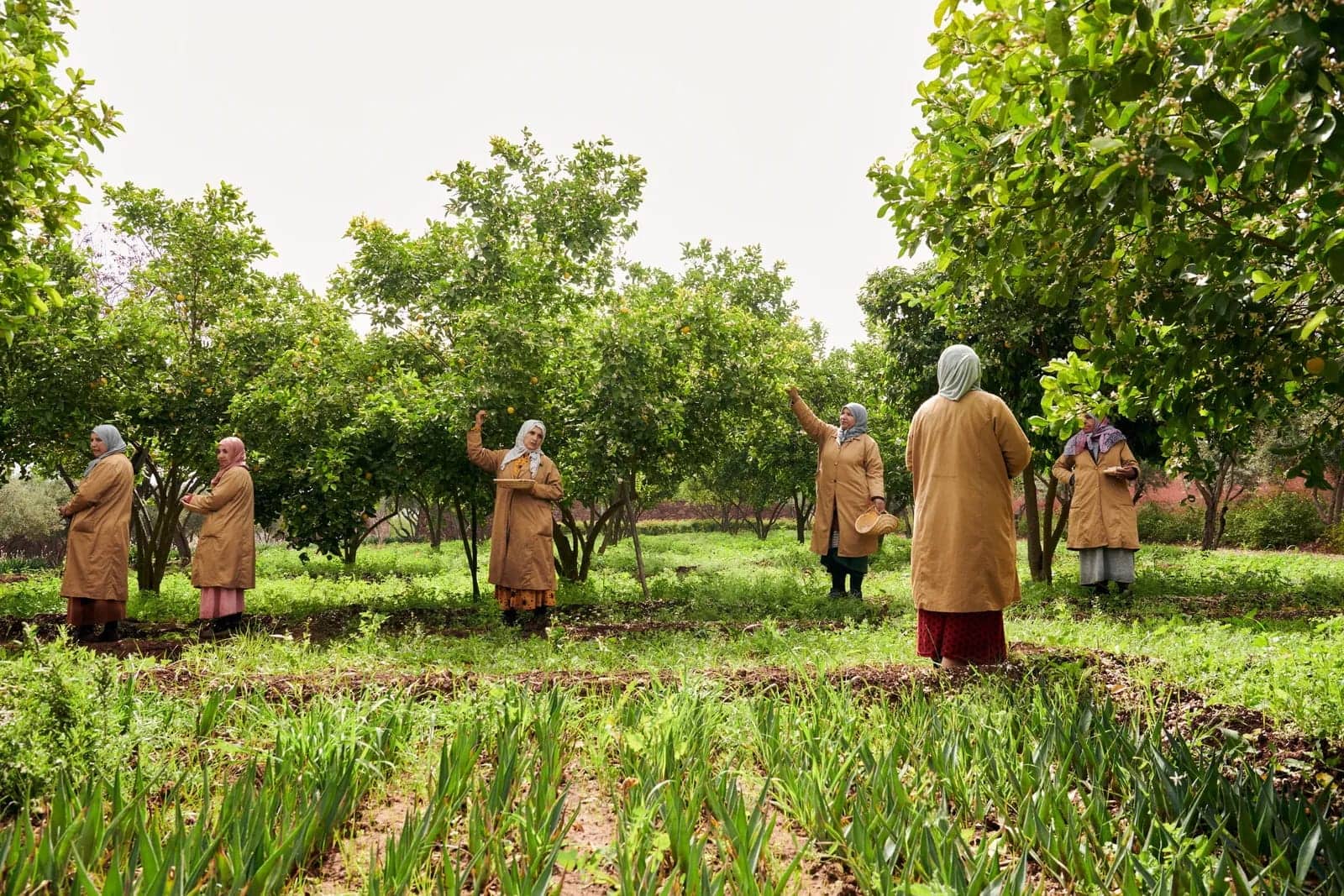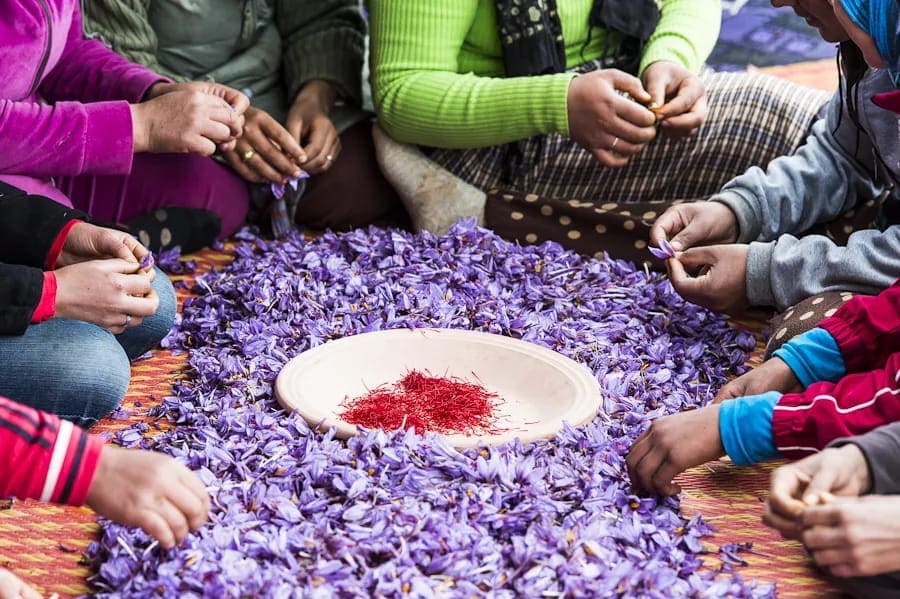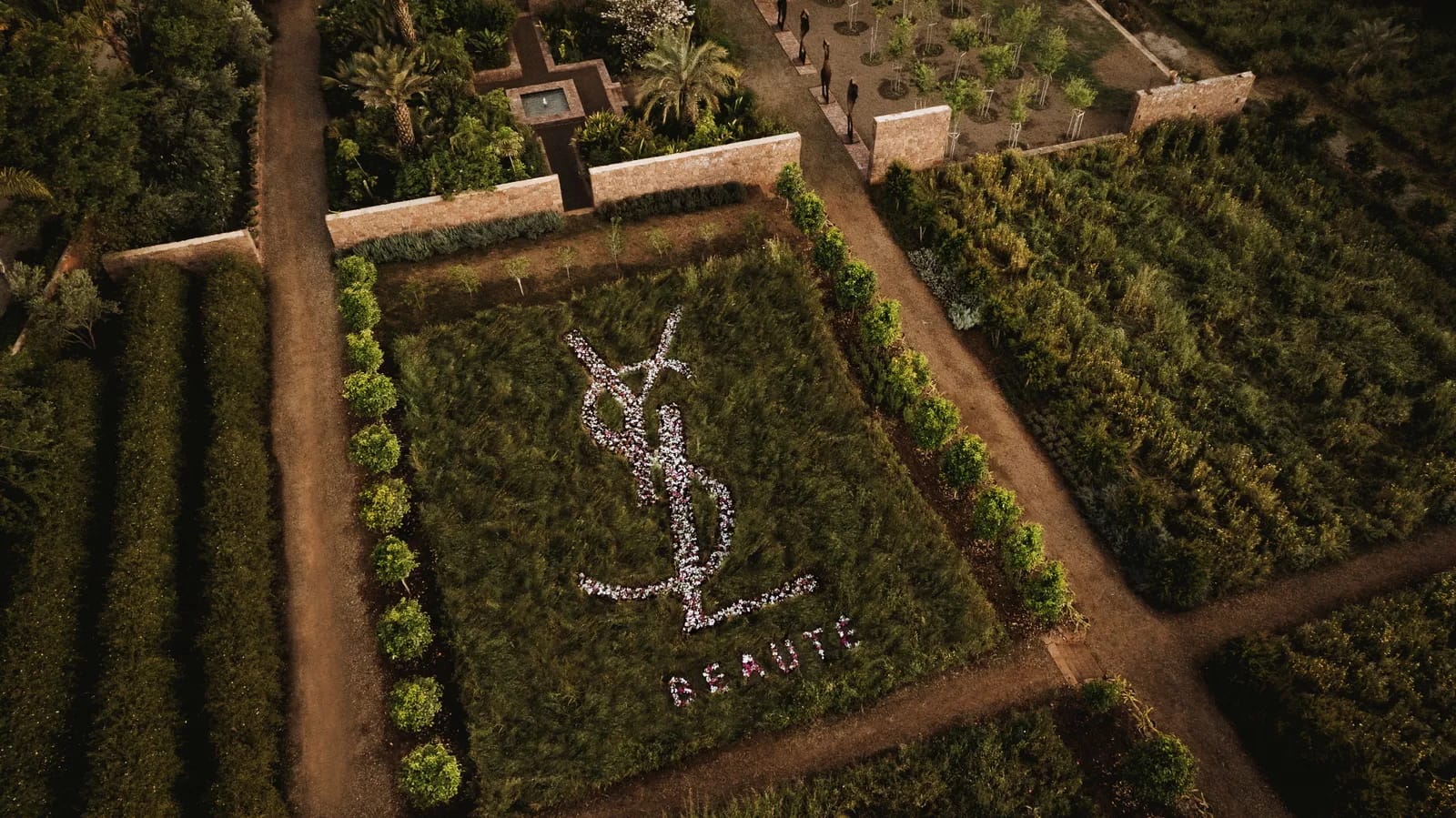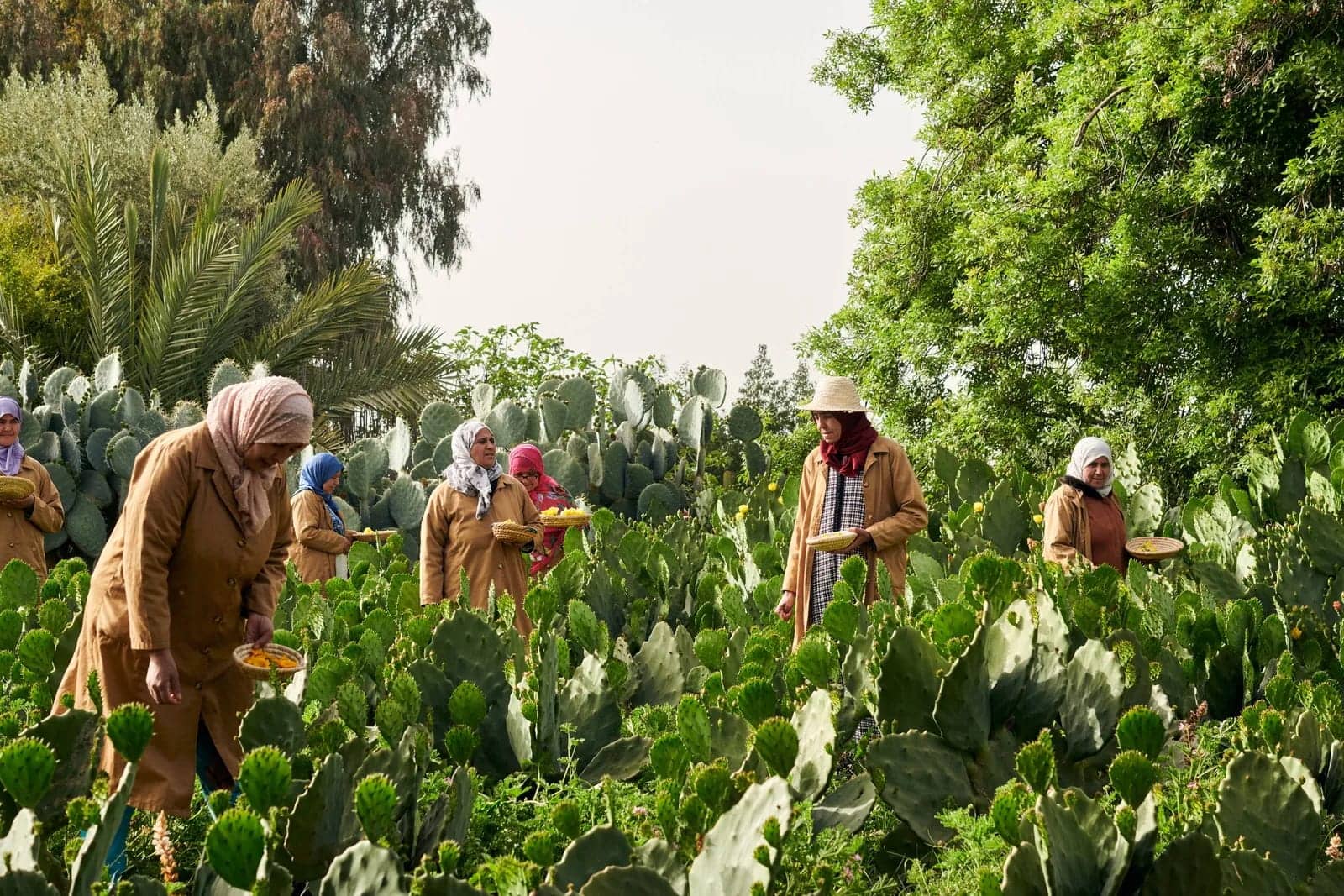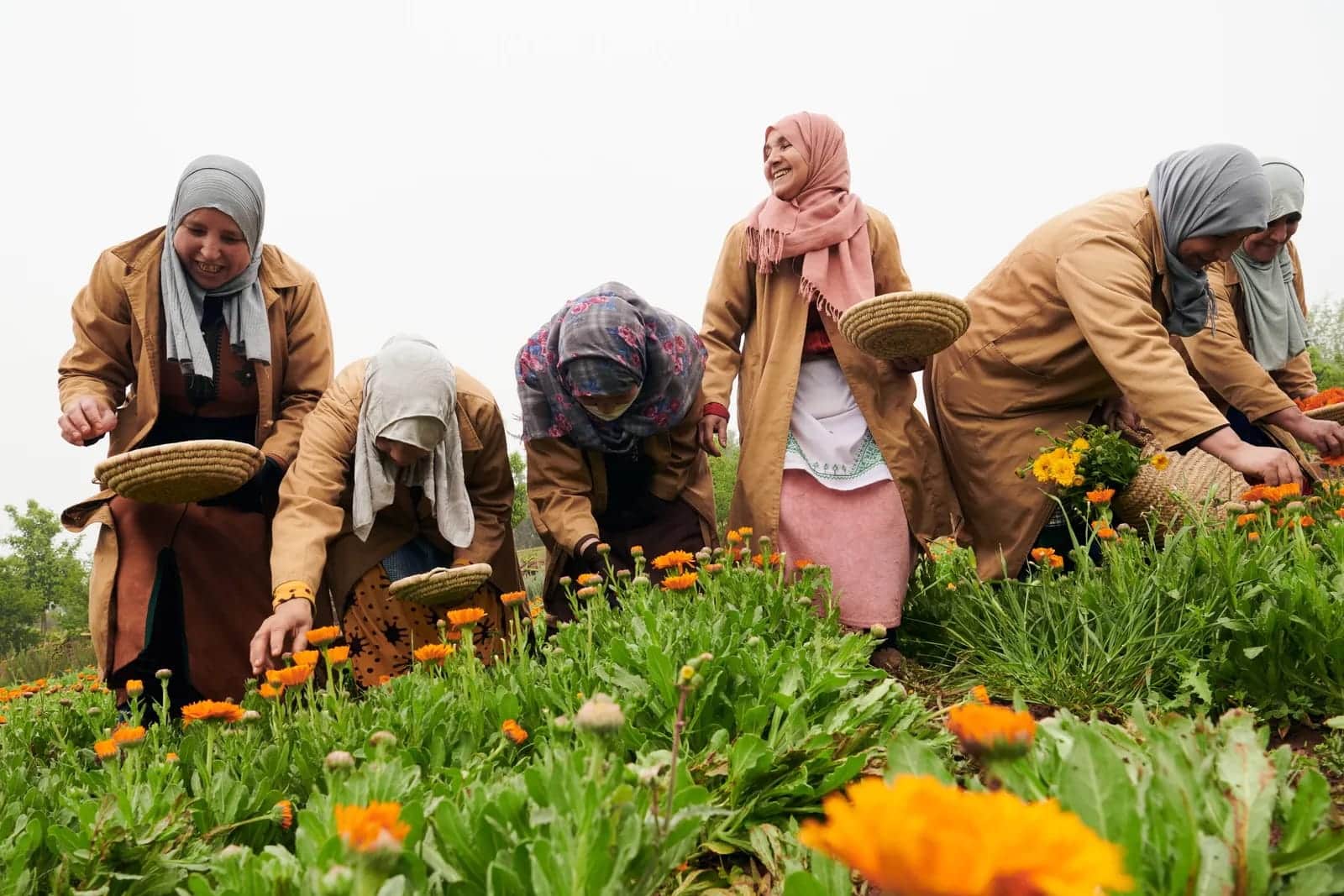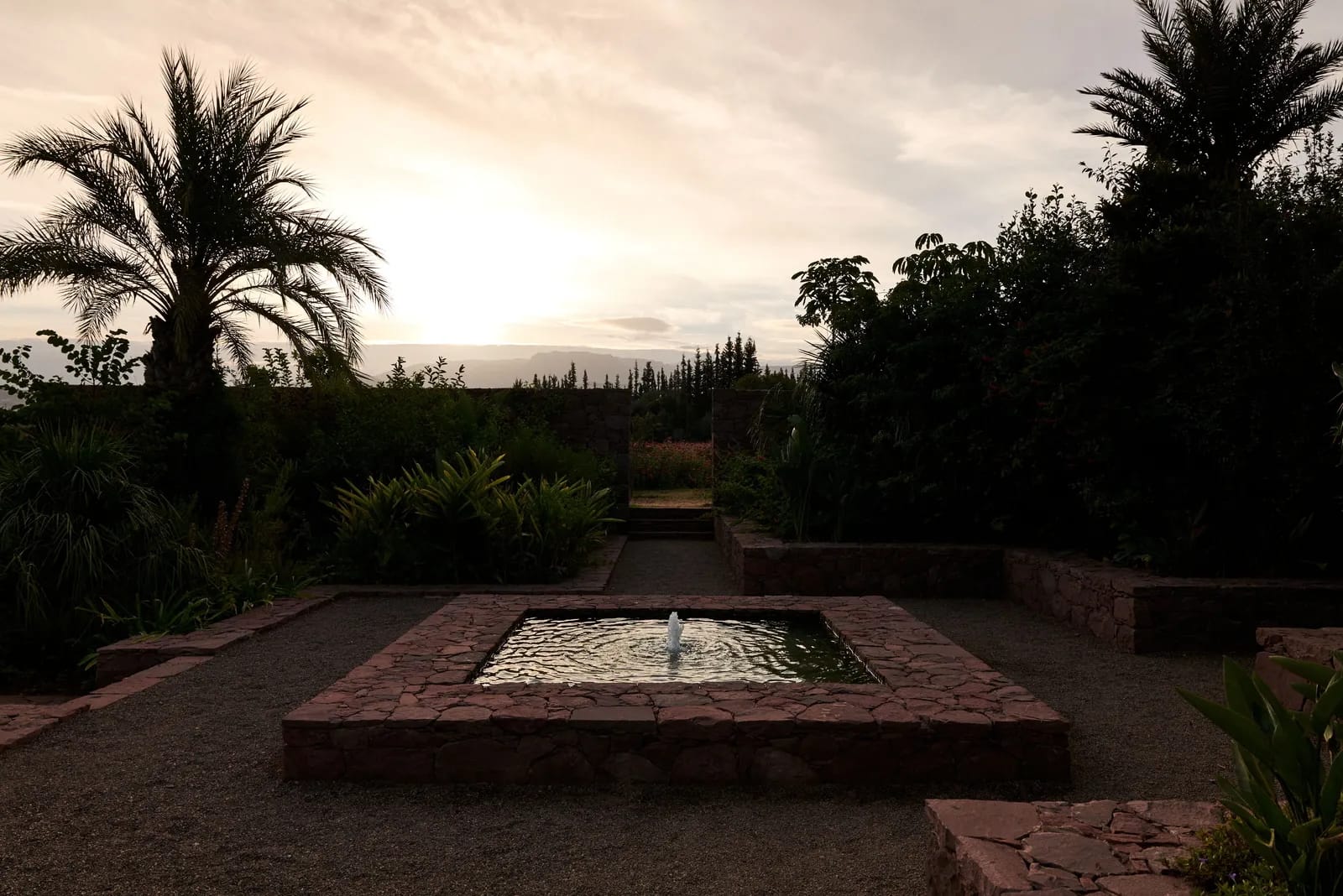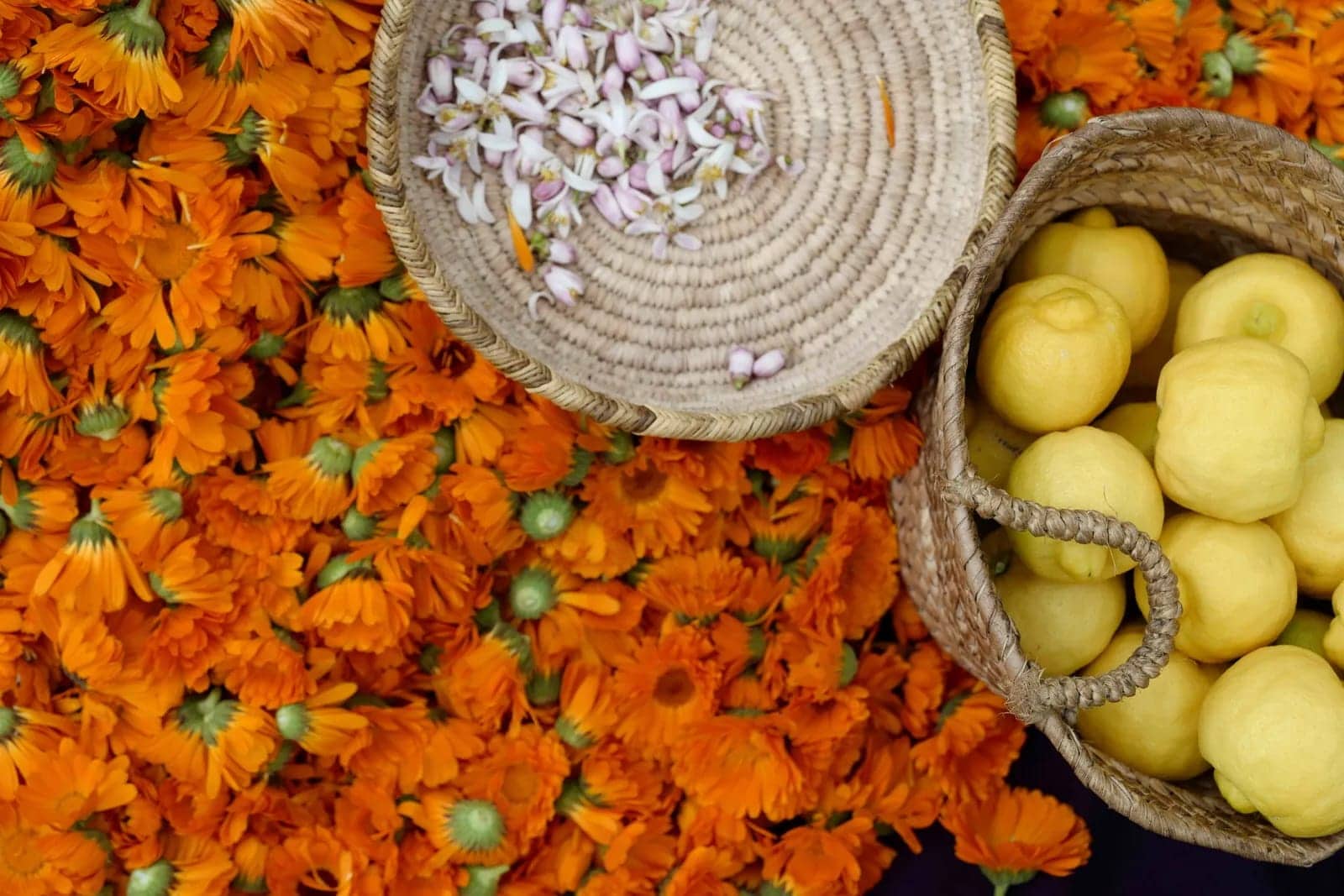Through the stewardship of local women, YSL Beauty’s botanical garden offers a regenerative gesture to the land and culture that once deeply inspired its founder
At the base of Morocco’s Atlas Mountains lies a picturesque botanical garden that cultivates both financial stability and over 200 native species through regenerative agriculture. Yves Saint Laurent, the late designer who championed true femininity through radical silhouettes like the ‘Le Smoking’ tuxedo, altered the course of fashion history, and now his namesake beauty brand is translating that legacy into a new kind of influence that penetrates far past product. In the Ourika Valley, YSL Beauty has built an agricultural and economic ecosystem where local women are not only employed but also become equity stakeholders in the production cycle itself, placing the brand within a growing movement to develop environmental, social, and governance practices that leave a lasting impact.
Launched in 2017, the Ourika Community Gardens initiative was conceived by YSL Beauty’s Sustainability and Science Director, Caroline Nègre, and designed by Architects Arnaud Maurières and Eric Ossart. The gardens form a structured mosaic of test plots, olive groves, and cultivation beds. Botanicals like iris, verbena, and pomegranate bring texture and vitality to the dry contours of the Ourika Valley for ingredients used in YSL Beauty’s skincare, cosmetics, and fragrance lines. Located near Marrakech, the site has evolved beyond sourcing botanicals; it now serves as a test case for how luxury brands might root global supply chains in ethical practice. More than 30 women from neighboring communities are employed year-round, earning stable incomes and gaining training in regenerative agriculture, while a portion of the profits is reinvested into educational and healthcare resources for their communities.
This model of shared benefit and stewardship reflects a larger recalibration happening across the beauty industry, particularly in how brands approach resource extraction in regions often exploited for raw materials. By embedding regenerative farming practices into its production process, YSL Beauty is not simply pursuing environmental responsibility as a marketing checkbox, but piloting a model that connects brand equity with local resilience. The garden is also supported by L’Oréal’s sustainability roadmap, which aims for full traceability and biodiversity protection across its supply chain by 2030, signaling how localized initiatives like this fit into broader corporate strategies.
What distinguishes the Ourika Gardens project from other sustainability pledges is its visible, measurable impact—not only on biodiversity but on the socioeconomic conditions of the women involved. These women are not treated as invisible labor; they are central to the garden’s ethos and long-term viability. Their knowledge of traditional agriculture methods, combined with regenerative techniques, ensures the site operates both as a living archive and an innovation scene. Designed to foster both skill and economic autonomy, the initiative offers women training in regenerative agriculture and the tools to transform over 200 botanicals into viable products. When harvests exceed YSL Beauty’s sourcing needs, women are empowered to repurpose the surplus for their own use to cultivate an independent income. In doing so, the project not only deepens brand transparency but subtly redefines the value of luxury as something reciprocal, rooted in shared human and environmental care. This community-first approach may inform future expansions as the brand continues to deepen its footprint in North Africa while answering rising consumer demand for transparency and purpose-led beauty.
Luxury beauty often strives to be chic and demands perfection that frequently comes at the expense of the subject; women who the business relies on to purchase prestige products. But this attempt at flawlessness, no matter its intent, glosses over the industry-wide necessity to redefine its relationship to land, labor, and legacy. YSL Beauty’s work in Morocco offers more than a narrative of ethical sourcing—it presents a framework for interdependence. By placing local women at the heart of both production and progress, the brand not only honors the spirit of its founder’s enduring bond with Morocco but also gestures toward a future where luxury is measured not solely in product but in shared prosperity.
